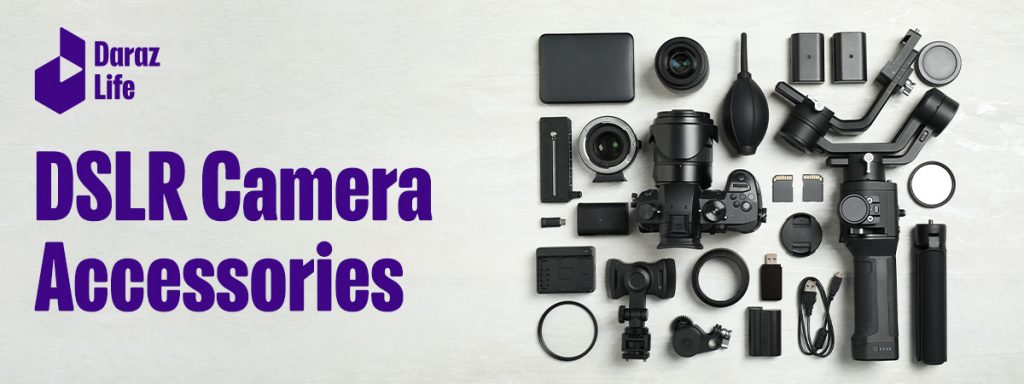Selecting the right air conditioner for your home or workspace is essential to maintaining a comfortable and healthy environment. With so many different types and models of AC available, it can be a bit overwhelming to find the perfect fit for your needs. That’s why we’re here to help you make an informed decision, by breaking down the factors you need to consider when choosing the perfect air conditioner for your home.
The Importance of Choosing the Right Air Conditioner
A well-functioning air conditioner is more than just a luxury – it can have a significant impact on your quality of life. Not only does it keep you cool and comfortable during the hot summer months, but it also helps maintain optimal indoor air quality by reducing humidity and filtering out pollutants.
Moreover, an energy-efficient air conditioner can save money on electricity bills while reducing your carbon footprint. So, it’s vital to invest in the right air conditioner that will cater to your specific needs and preferences.

Factors to Consider When Selecting an Air Conditioner- Complete Breakdown
1. Size and Capacity
How to choose an air conditioner size? It’s crucial to choose an air conditioner with the right cooling capacity for your space. Too small, and it won’t adequately cool your room; too large, and you’ll end up with high energy bills and a damp, clammy environment. So, make sure to consider the size of your room, ceiling height, insulation, and sun exposure.
Different Sizes of ACs: 1 Ton AC | 1.2 Ton AC | 1.5 Ton AC | 2 Ton AC | 2.5 Ton AC | 3 Ton AC | 4 Ton AC | 4.5 Ton AC | 5 Ton AC | 10 Ton AC
When it comes to choosing the right air conditioning unit, size really matters. Selecting the correct size is one of the most important factors to consider. Let’s talk about why this is, and how you can determine the appropriate size for your space.
First up, let’s chat about BTUs. British Thermal Units are the units of measurement used to determine the cooling capacity of an air conditioning unit. Essentially, the higher the BTU, the more powerful the unit is.
But, how do you know what size to choose based on BTUs? Room size plays a big role. The larger the room, the more BTUs you’ll need to cool it effectively. Other factors, like insulation, number of occupants, and sun exposure, also impact BTU requirements.
So, how can you figure out what size unit you need? Start by measuring the square footage of the room you want to cool. Then, use a BTU calculator to determine the appropriate BTU range for your space. And remember, selecting the right size is crucial for effective and efficient cooling.
2. Types of Air Conditioners
Which type of AC is best for your home? With numerous types of air conditioners available – like window units, split systems, and central air conditioning – you’ll need to decide which one best suits your needs and budget. Factors such as installation requirements, ease of maintenance, and energy efficiency should be considered when making this decision.
- Window Air Conditioner
- Split Air Conditioner
- Portable Air Conditioner
- Central Air Conditioner
- Ductless Mini-split Air Conditioner
When choosing the best type of air conditioner for your needs, it’s important to compare the different types and consider factors such as room size and your budget.
So, which type will you choose? Let’s see the comparison of different types of air conditioners so that you can make your purchase decision easily. Here, we listed the best AC types which are affordable.
| AC Type | Best For | Top Pick |
| Window Air Conditioner | A popular and affordable choice for smaller homes or single-room cooling. | Jadroo JRAW-18CR |
| Split Air Conditioner | A bit more pricey but provide more efficient cooling for larger spaces. | ELITE 1.0 Ton Split Type AC |
| Portable AC | Easy to move from room to room | MIDEA 1 Ton Portable AC |
| Central AC | Useful for larger homes and can cool multiple rooms at once. | Walton Cassette [AC 4 TON] WFN-48K-RXXXD |
| Inverter AC | Fast cooling, stable performance, and digital technology. | Nico 1Ton/12000Btu Inverter |
3. Energy Efficiency
To save on energy bills and reduce your environmental impact, look for air conditioners with a high Seasonal Energy Efficiency Ratio (SEER) rating or an Energy Star certification. These models may be more expensive initially but will save you money in the long run.
Tips for Maximizing Energy Efficiency
To maximize the energy efficiency of your air conditioning unit, here are some useful tips:
- Proper installation: Ensure your AC unit is installed correctly and keep the system free of any obstructions that impede airflow.
- Regular maintenance: Schedule regular maintenance with a qualified technician to ensure that your air conditioning system remains in optimal working condition.
- Programmable thermostats: Utilize a programmable thermostat to regulate the temperature of your home or office for periods when you are not present or when you are sleeping.
- Ventilation: Keep your home or office properly ventilated by using ceiling fans, opening windows, or using exhaust fans in the kitchen and bathroom.
- Clean filters: Replace or clean air filters regularly to prevent clogging and ensure that the air conditioning system is functioning efficiently.
4. Noise Level
If you’re sensitive to noise, especially while sleeping, make sure to check the decibel rating of the air conditioner. Quieter units usually have a noise level of around 50-55 dB.
5. Features and Functions
When it comes to buying a new AC unit, you may also need to consider its additional features aside from its cooling capacity. These additional features can greatly enhance your comfort level and the quality of air inside your home.
Depending on your preferences, you might want to look for air conditioners with additional features such as smart connectivity, timers, sleep modes, and air filters. Here are the most common types of additional features you can find in an AC system:
- Smart controls: These features allow you to control your AC using a smartphone application, voice commands, or a home automation system. This way, you can easily adjust the temperature, set schedules, and monitor energy consumption using your mobile device.
- Air purifiers: This feature comes in handy if you or any family members have allergies, asthma, or other respiratory illnesses. The air purifier captures and removes airborne allergens, dust, and microbes, ensuring you’re breathing in clean and healthy air.
- Dehumidifiers: Excessive humidity inside your home can lead to mold growth, musty smells, and discomfort. Some AC units come with dehumidification capabilities, which extract excess moisture from the air, maintaining the ideal humidity level.
- Energy-saving features: These features help you reduce energy consumption, lower your utility bills and minimize your carbon footprint. Examples include programmable thermostats, sleep modes, and automatic shutdowns.
Overall, the importance of these additional features depends on your specific needs and preferences. Consider your living conditions, health concerns, and lifestyle when deciding on which features to prioritize. It’s always best to consult a professional HVAC technician to help you choose the right AC unit with suitable additional features matching your requirements.
6. Budget & Cost
Let’s discuss the budget and costs of AC, including long-term costs, and how to balance performance and needs. When it comes to purchasing an air conditioner, several factors can impact the cost of the unit. In this section, we will discuss the most significant factors that affect the price of an air conditioner.
AC price in the different budgets: Under 40, 000 Tk | Under 50,000 Tk | Under 70,000 Tk | Under 1 Lac Tk | Above 1 Lac Tk
Size of the Air Conditioner
One of the primary factors that influence the cost of an air conditioner is its size. Larger air conditioners are generally more expensive than smaller units. However, it is important to choose an air conditioner that is appropriately sized for the room it will be used in.
An air conditioner that is too small will not be effective in cooling the room, while an air conditioner that is too large will use more energy and result in higher energy bills.
Type of Air Conditioner
Another factor that can impact the cost of an air conditioner is its type. There are several different types of air conditioners, including window, portable, and split-system units.
Window units are typically the most affordable option, while portable units are more expensive. Split-system air conditioners are generally the most expensive type of unit, but they are also the most efficient and effective at cooling larger spaces.
Energy Efficiency Rating
The energy efficiency rating of an air conditioner is an important factor to consider when purchasing a unit. Air conditioners with higher energy efficiency ratings use less energy to cool a room, which can result in lower energy bills over time.
While air conditioners with higher energy efficiency ratings may be more expensive upfront, they can ultimately save you money in the long run.
Features and Additional Functions
Air conditioners with additional features and functions such as smart controls, air purifiers, and dehumidifiers can also impact the cost of the unit. While these features can be beneficial, they can also add to the overall cost of the air conditioner. It is important to consider whether or not these features are necessary for your specific cooling needs.
Brand and Quality of the Unit
Finally, the brand and quality of the air conditioner can also impact the cost of the unit. High-end brands and models may be more expensive than more budget-friendly options, but they may also be more reliable and durable.
Popular AC Brands in Bangladesh: Midea AC | Haier AC | Gree AC | Samsung AC | Walton AC | General AC | Minister AC | Sharp AC | LG AC | Vision AC | Singer AC
It is important to consider the brand and quality of the unit when making a purchasing decision, as this can impact the lifespan of the air conditioner and ultimately save you money in the long run.
Tips for Reducing Air Conditioning Costs
Air conditioning can be a lifesaver during the hot summer months, but it can also lead to high energy bills. Fortunately, there are several ways to reduce the cost of running your air conditioner without sacrificing comfort. Here are some tips to help you save money on your air conditioning costs:
- Regular Maintenance and Cleaning: One of the simplest ways to keep your air conditioning costs down is to perform regular maintenance and cleaning on your unit. This includes changing the air filter regularly, cleaning the coils, and checking the refrigerant levels.
- Upgrading to a More Energy-Efficient Unit: If your air conditioner is old or inefficient, upgrading to a more energy-efficient unit can help you save money in the long run. Look for air conditioners with high energy efficiency ratings, as these units use less energy to cool a room.
- Using Programmable Thermostats and Smart Controls: Programmable thermostats and smart controls allow you to set your air conditioner to turn on and off automatically based on your schedule and preferences. This can help you save money by ensuring that your air conditioner is not running when you are not home or when you do not need it. Some smart controls can even learn your preferences and adjust the temperature accordingly, further reducing energy costs.
- Sealing Windows and Doors: Air leaks around windows and doors can lead to significant heat gain in your home, making your air conditioner work harder to keep the space cool. Sealing these leaks can help reduce energy costs and improve the efficiency of your air conditioner. Use weatherstripping and caulking to seal any gaps or cracks around windows and doors.
- Using Fans and Shading to Reduce Heat Gain: In addition to your air conditioner, using fans and shading can help reduce heat gain in your home. Ceiling fans can circulate cool air throughout a room, making it feel cooler and reducing the need for air conditioning.
Additionally, using shades, curtains, or blinds to block out the sun can help keep your home cool and reduce the load on your air conditioner.
7. Warranty and After-sales Support
Finally, don’t forget to check the warranty offered by the manufacturer and the availability of after-sales service.
Investing in the right air conditioner is essential for maintaining a comfortable living environment. To find the best fit, keep the factors mentioned above in mind and balance your specific needs with your budget. With a well-chosen air conditioning system, you can enjoy a cool, relaxing, and healthy environment all summer long.
Choosing the right air conditioner for your home can be overwhelming, but with this buying guide, you can make an informed decision. Consider factors such as room size, energy efficiency, noise level, price, installation, and additional features before making a purchase. Also, don’t forget to clean and maintain your air conditioner regularly to ensure its longevity and efficiency.
In summary, whether you opt for a window AC, split AC, inverter AC, or portable AC, make sure it meets your requirements, budget, and preferences. A comfortable and cool home is within your reach with the right air conditioner.
Check also: Top 6 Inverter ACs to Buy in Bangladesh
Frequently Asked Questions
What is the difference between inverter and non-inverter ACs?
Inverter ACs have a variable-speed compressor that adjusts the compressor speed according to the room temperature, while non-inverter ACs have a fixed-speed compressor that switches on and off to maintain the room temperature. Inverter ACs are more energy-efficient than non-inverter ACs.
How often should I clean my air conditioner?
It’s recommended to clean your air conditioner every three to six months to maintain its efficiency. You can clean the air filter, condenser coils, and evaporator coils with a soft brush and water.
Can I install an air conditioner myself?
Window ACs are relatively easy to install, and you can do it yourself if you have some basic knowledge of electrical work. However, split ACs require professional installation.
What is the lifespan of an air conditioner?
The lifespan of an air conditioner depends on several factors such as usage, maintenance, and brand. On average, an air conditioner can last anywhere from 10 to 15 years.
Shuvo Roy, an enthusiastic Content Writer & Researcher, has expertise in several industries, especially in IT, Software & E-commerce. Moreover, he is a strategic planner.









